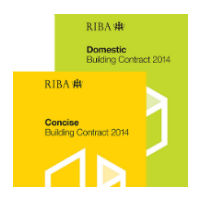
12 February 2016
Concern Over RIBA Construction Contracts
Contractors are being advised to take care when using the two forms of contract published by the Royal Institute of British Architects (RIBA) due to concerns over the balance of risk between the parties.
A review of the RIBA Concise Building Contract and the RIBA Domestic Building Contract undertaken by the Contractors Legal Group (CLG), which Build UK is a member of, has identified that the balance of risk is often passed to the Contractor. In addition, the Contractor is faced with some onerous obligations, such as losing the right to an EOT/additional payment in respect of any Changes to the Works if they do not provide time and cost details to the Contract Administrator within 10 days of receipt of the Change instruction.
The Concise Building Contract covers small-scale commercial building projects of a straightforward nature whilst the Domestic Building Contract is designed for all types of non-commercial work, including renovations, extensions, maintenance and new buildings.
There are currently no standard sub-contracts that are back to back with the RIBA contracts and Contractors should take care when issuing or receiving sub-contracts for works to be carried out under the RIBA contracts. Any sub-contracts should be properly drafted and reflect any specific requirements under the RIBA contracts as appropriate. In particular, any sub-contracts let under the Domestic Building Contract may need to be Construction Act compliant notwithstanding that the main contract may not be.
The concerns with the two contracts have been raised with the RIBA which is undertaking a review and it is expected that a revised set of contracts will be released later this year.
In the meantime, Contractors that are asked to contract using either of the two existing RIBA forms of contract should ensure that they understand their obligations and, if necessary, take appropriate legal advice before entering into them.
